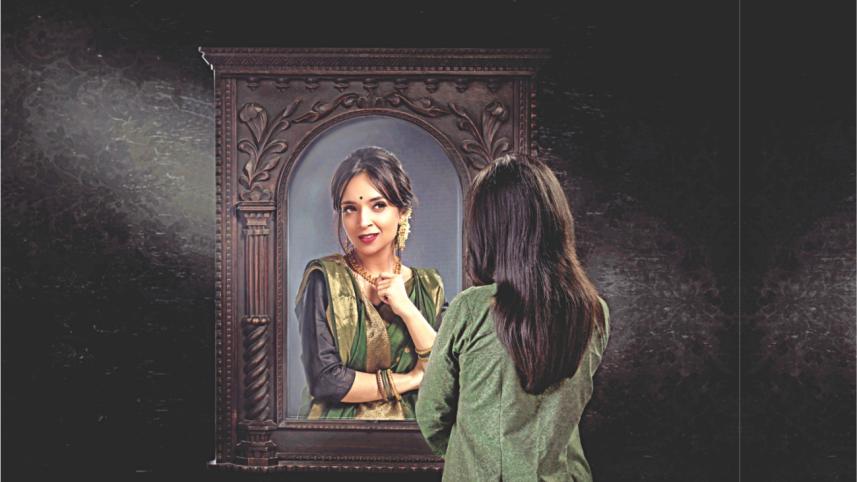“Music is like home”

Dia Chakravarty is a serious person. Her Wikipedia page lists her as a 'political activist' living and working in the UK as the political director of British think tank The Taxpayers' Alliance. But there is another side to this Oxford alum barrister that many of her colleagues may not know of her: the deep-rooted love for music of her roots here in Bangladesh. “Music is like home,” Dia told me as we caught up during her recent visit to Dhaka. “It was my father's mission. Every night before we went to bed, he would play music, almost like a subliminal message, and today, it takes me to a comfortable place.”
Last year, she released her debut album “A Bloom in Vain and Other Songs” (the Bangla title being “Koto Chameli Britha Jaye”), presenting songs of Rabindranath Tagore, Atulprasad Sen, DL Roy and Rajanikanta. This year, she has made time once again for music, producing “Inheritance” (“Uttaradhikar”) that is set for release under Impress Audio Vision very soon. “What is your tug to this music?” I ask. “I love to perform all kinds of Bangla songs, but Ponchokobi, I believe, is my inheritance. If you can't hold on to it, you'll lose it, you know?” The album features three songs each of Tagore, Nazrul and Atulprasad, and was recorded in Kolkata under Pratyush Banerjee's arrangement. “Because of what I do professionally, I cannot take care of my voice as much. So I took a sabbatical and came to India a month ago, just to give myself and my voice that time and preparation.”
“Why did you choose these three of the Ponchokobi for this album?” I'm curious. “Because I think musically, Atulprasad works as a really good bridge between Rabindranath and Nazrul. My album opens with 'Heriya Shyamolo Ghono' and ends with 'Padma'r Dheu Rey', and I wanted the transition to be smooth for the listener. Also, I hadn't done Nazrul songs before, and every musician looks to take on new challenges. I tried to capture the flavours of the songs the best I could,” Dia makes an excellent point.
“Is it hard to continue practice of music from your profession?” I ask. “I practice as much as I can,” she smiles. “I would like to mention one person: my mentor Anuradha Roma Chowdhury. It is because of her that I am here. My husband, Duncan, is also very supportive of it. He has known me for a long time, so he has sort of grown up with this music, and although he doesn't understand it, I think it speaks to him in some way. That's the wonderful thing about music, isn't it?”



 For all latest news, follow The Daily Star's Google News channel.
For all latest news, follow The Daily Star's Google News channel.
Comments